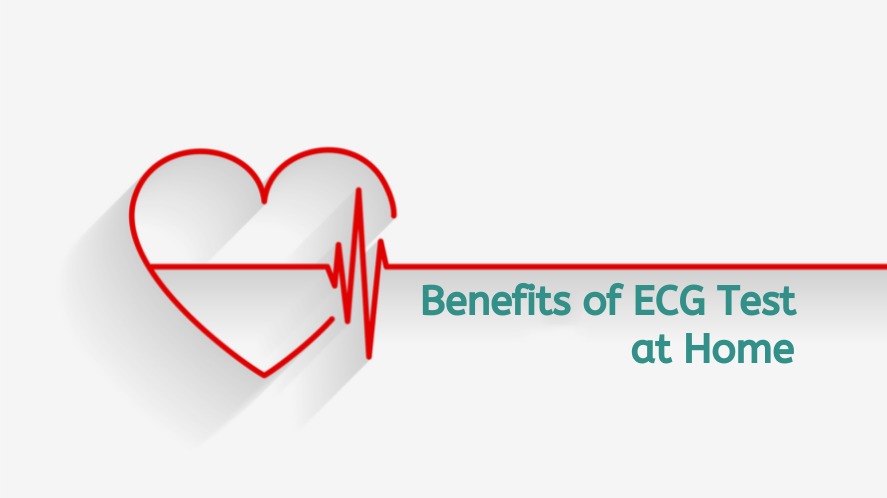Electrocardiogram
ECG or an electrocardiograph is a crucial diagnostic test. It monitors the heart rate and rhythm and spots any abnormalities. It illustrates the heart’s electrical activity on a graph paper called the electrocardiograph. To do so, it uses leads that rest on the limbs and the chest. Each piece of information shows the activity of a particular heart area. The findings from all the leads give us an idea of how the heart functions.
Can an ECG test be done at home?
Yes. With the help of a portable ECG device and a healthcare worker trained in its use, ECG at home is possible. One can use online medical service portals like Medintu to book an appointment for a home ECG test. We offer a range of home-based care services in Hyderabad and other cities, giving you the best home medical care services available in the city.
Benefits of ECG Test at home?
The following are some of the benefits of ECG at home:
- It is very convenient
- It saves the time and money spent on travel
- Individual attention without interruption can lead to the most accurate readings.
- Professionals trained exclusively for taking ECGs to take the test.
- The risk of hospital-acquired infection will be as good as nil.
- A good option for older people with severe illness, making their movements and transportation difficult.
- No anxiety in a hospital environment.
When to take ECG test?
It is recommended by the cardiologists if you experience the following:
- Chest pain
- Palpitations
- Easy fatiguability with swelling in legs
- Shortness of breath during everyday activities.
- Congenital heart disease
- Pain in the jaw, arm, and chest area
- Any breathless and coughing at night
These symptoms indicate an underlying heart disease that needs to be evaluated and managed.
How can I prepare for an ECG test?
It does not need any special precautions to be required. You can, however, do the following.
- remove all metal jewelry or piercings from the body
- Tell the doctor about all the medications that you take.
- you may need to remove your chest clothing for placement of the leads
- Try not to use very oily body lotions on the day of tests so that the doctors can put the electrodes without slippage.
- Do not drink any caffeinated beverages at least 2 hours before the test.
- Do not exercise or eat a meal right before the test.
What is the procedure for an ECG tests?
You have to lie on your back on a bed—the areas where the leads are exposed and may get shaved. After a paste is applied and the lead placement, the ECG machine starts recording to show your heart’s electrical activity on the monitor. During the recording, they may ask you to hold your breath in between. The entire procedure lasts for 5 to 10 minutes and is entirely painless. The doctors remove the leads and wipe off the paste, which marks the procedure’s end.
What conditions can an ECG help diagnose?
An ECG can help in the diagnosis of
- any rhythm abnormalities in the heart that can be potentially life-threatening, such as arrhythmias.
- Any abnormal heart rate
- electrolyte deficiencies or excesses like potassium, calcium, or sodium.
- A heart attack
- any enlargement of the heart.
- Change in position of the heart or sometimes an abnormally placed heart.
What does an ECG report tell about the condition of the heart?
An ECG report is in the form of an electrocardiograph. It tells about:
- The rate of the contractions of the heart.
- The rhythm of the heart beats.
- About the position of the heart.
Any abnormalities in the above can lead to the next set of evaluations that the doctor may conduct.

